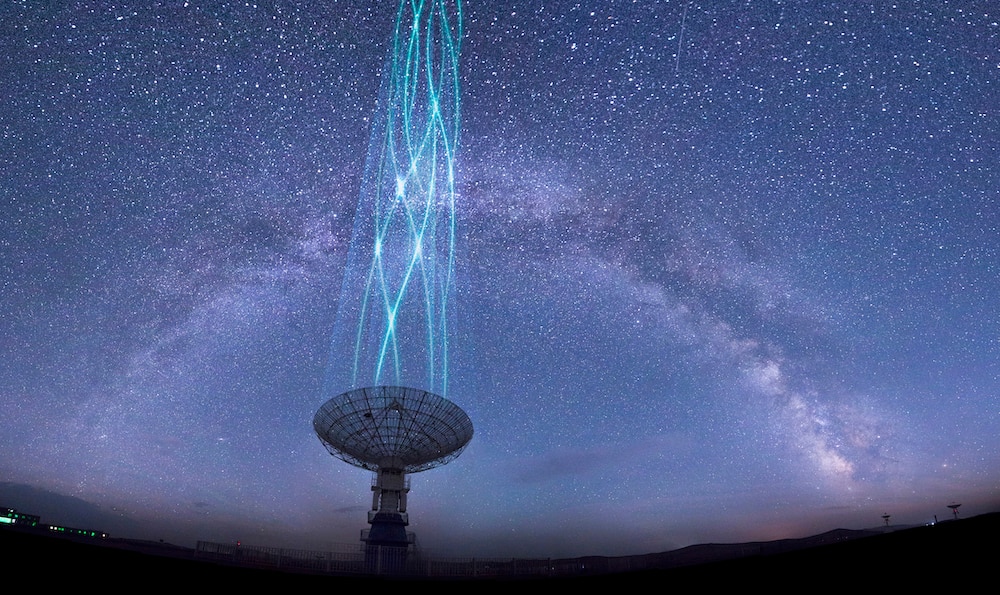Create a free profile to get unlimited access to exclusive videos, sweepstakes, and more!
Could aliens send us quantum messages across the galaxy?
Someone's going to make a killing on quantum caller ID.

Resident Alien (now streaming on Peacock or on the SYFY app!) sees Harry Vanderspeigle — an alien in disguise, who’s true name is unpronounceable — grappling with the conflict between his mission to wipe out humanity and his burgeoning connection with the people around him. In a 2022 episode, Harry attempts to use ‘Oumuamua to make contact with his people and delay humanity’s destruction. It’s unclear how the alien communications tech works, but it’s certainly more advanced than what we’re used to on Earth.
In real life, we’ve spent the better part of 80 years searching for extraterrestrial radio signals using a variety of radio telescopes as a part of the SETI program. So far, we haven’t been successful in finding evidence of alien communications, but we might have been looking for the wrong things. In a recent study, scientists from the University of Edinburgh propose that aliens could send quantum communications across the entirety of the galaxy without losing any information. Their findings were published in the journal Physical Review D.
Quantum communication is a relatively recent endeavor for humanity, and we still have a lot of bugs to work out, but it seems reasonable that an alien intelligence even a little further along the technological track than us might have worked it out.
Where conventional computers use bits to indicate a 1 or a 0, quantum computers use quantum bits, popularly known as qubits, to carry information in a more complex way. In addition to allowing for theoretical computers which are much more powerful than even our best supercomputers, quantum communication could also offer dramatically improved security. That said, it’s not without its challenges. In fact, as it stands, quantum communication is mostly challenges with few successes.
One of the biggest barriers is decoherence. Because quantum signals depend on the state of an individual particle and reading out that information requires interacting with that particle on the other end, there’s considerable risk that data will be lost along the way. In essence, if a quantum particle interacts with other particles on its journey between sender and receiver, it will decohere and any information it’s carrying will be lost. That makes building networks over long distances challenging, although we’ve made some progress in that regard as of late.
Despite the considerable hurdles on Earth, quantum signals sent across space have a smoother road to travel. That’s mostly because space is almost entirely empty. In the space between stars, there’s only about one atom for every cubic centimeter on average, and in some regions it gets much lower. That means that a signal sent across the galaxy has a decent chance of getting through without interference from other particles.
Researchers calculated how far a signal sent via X-rays could travel through interstellar space without succumbing to decoherence. Their findings were staggering in their hopefulness. While quantum communications on Earth struggle to travel very far at all, they found that a signal through space could travel farther than the total length of our galaxy.
If there are aliens out there trying to reach us, searching for quantum interactions might be the best way for us to receive their call. Of course, quantum communications still don't allow us to break the light speed barrier, so any conversation would remain long-distance and slow in the making. Let’s just hope that when and if we finally do get connected, they’re inviting us to a party instead of a massacre.


























